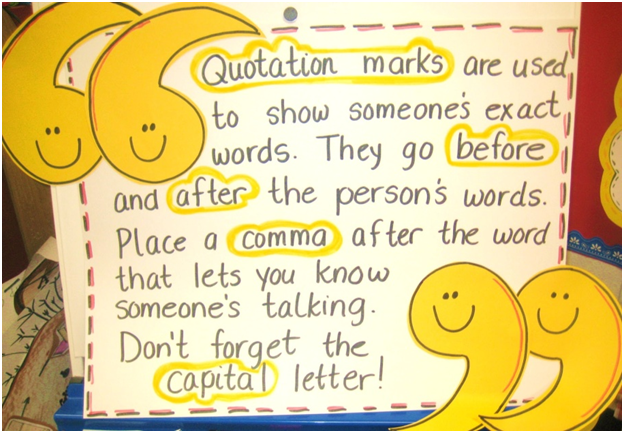How to improve your vocabulary for entrance exams?
Many of us may have conveniently ignored the spelling test exam back at school; however, as we grow, we happen to realize the importance and the need of being well acquainted with words. Whether you wish to improve your vocabulary for a college entrance exam or to secure a better position in your future career, you are at the right place!

This article is an informative piece on how to tackle the learning process of acquiring a stronger vocabulary the right way...
The three point vocabulary constructor:
1. Source search: The first step in the right direction is that you need to get proactive and look for a source that could teach you at least five new words a day. You could use a dictionary, an online English tutor, or find an interactive blog to meet more people who have the thirst to learn and strengthen their spoken English vocabulary as well. Look for bonus sources that along with the meaning of the word; also provide you with the right set of example teaching you how to use the word in sentences as well.
2. Build your own dictionary: Nothing works better than writing it down. Maintain a notepad full of the words you've been learning, along with its meaning in simple text. You need to build an association with the words and do some groundwork on the same. Read about the words, look for synonyms and make it a point to familiarize yourself with these words by maintaining a written record in your very own little dictionary.
Example:
Obscure
Meaning- Difficult to see, vague
Synonym- Confuse, Blot out
Usage- That rainy night brought with it an obscure vision that made it difficult to drive.
This is just one such example of a word that you probably didn't really know. You can catch hold of a host of difficult words to help you understand and adapt them into your day-to-day life. Also, one of the fastest and most efficient form of gaining a good vocabulary would be enrolling in an online English program to help develop a more proficient vocabulary than the usual self-study.

3. Construct sentences: The words you've learned need to be framed in your head. And how will that happen? Well, the only way of grasping those words completely is by using them in your very own sentences. Make sure the sentences you construct are not amateurish and unskilled. The English language has a lot to explore and the learning process should help you connect to it and enhance your English communication skills to an elated level altogether. You could also take your lessons a few notches higher by complicating it. Pick five new learned words and try framing a paragraph that makes complete sense around it. A fact is that if you've done your homework well, you'll be surprised at what you've come up with.

Reading, learning, registering and practicing are the four-step process that will help you incredibly in your vocabulary journey henceforth. Keep aside all your inhibitions and gain a strong foundation in both your written as well as spoken English. The above-mentioned activity should take you only 15 minutes per word. In addition, make sure to focus and take each of the three steps seriously to reap the benefits of being an English professional. On having completed and attained a command over new words, you can confidently start including them in your vocabulary set and begin using them flawlessly.
About eAgeTutor:
eAgeTutor.com is a premier online English learning institute. eAge's world class faculty and ace communication experts, from around the globe, help you to improve english in an all-round manner. Assignments and tasks based on a well-researched content developed by subject matter and industry experts can certainly fetch the most desired results for improving spoken English skills. In this age of effective and advance communication technology, online spoken English programs are the most effective and convenient way to learn English.
For further information on our online English speaking courses or to experience the wonders of the virtual classroom, fix a demonstration session with our tutor.
- By Monika Agarwal
Related Topics:
1. Why English is Considered an International Language?
2. Who or Whom: Learn the Right Usage with Examples
3. What are words with similar meaning /opposite meaning to another word known as?
4. What are words that confuse you known as?
5. What are vowels and Consonants?
Learning English through Music - Go the Lyrical Way!
How to improve spoken English?
This is one of the most common questions that we face on a day-to-day basis. As an English speaking course provider, we have researched and identified newer ways that can help students to improve their communication skills. One such experiential way is to go lyrical.
Often, students get bored learning grammar and other nuances of English. In such a scenario, a little dose of fun is always welcome. So, let us join together in a fun and entertaining journey to improve your English speaking.
Principles of learning English
Before we venture deep into how music can help you improve your vocabulary, let us first look at the principles you need to follow on this route.
1. Have fun while learning English
It is essential that you enjoy this activity, albeit, the whole point would be lost. Make sure you are passionate about the kind of music that you choose to listen to, to improve your English learning.
2. Practice 20 minutes every day
It would be much simpler to follow this principle if you preach the first rule. Learning a new skill, especially a new language, takes a lot of effort and time. Although learning English may not eat up a lot of your time, but you may have to commit a small portion of it every day. Unless you practice each day without fail, you would not reap significant results.
3. Have your reasons in place
It is important that you have your reasons in place for learning English. It is not something that you are doing for the society, at large. So, come up with a strong motivation that will keep you on track to learning English.
Now, just turn up the volumes and put on your headphones, the most enjoyable English learning class is about to begin.
The best way to learn English - the no stress way
Set a goal. The goal should be to have an enjoyable time while you improve your vocabulary. Get used to hearing English. It is a known fact that people who enjoy English music have good knowledge of the language as well. This is because you are exposed to a humongous library of new words. The goal is to know their meaning and their usage.
In addition, while you hear music, you can also understand the feelings. This is the nature of music; it allows you to connect the feelings, words, meanings and stories, all at the same time.
Let's look at the lyrics of a popular song:
Artist: Eurythmics
How many sorrows
Do you try to hide
In a world of illusion
That's covering your mind?
If you listen to this song and pay attention to the lyrics, you would learn a lot of new words. This song is simple, the pronunciation is clear and the words are easy to understand.
If you come across a word like illusion, look up for its meaning online. Wikipedia definition, "An illusion is a distortion of the senses, revealing how the brain normally organizes and interprets sensory stimulation."
Now, relate it with the lyrics of the song, the concept would be clearer. Isn't it easy to learn new words and improve your English vocabulary this way? Learn English for free by listening to your favorite songs. Get started now!
About eAgeTutor:
eAgeTutor.com provides English courses online for people who want to improve spoken English. Our expert tutors from around the globe undertake the online spoken English classes. A mix of interactive and fun-based programs is developed for students to help them improve their English language.
For further information on our online spoken English courses, please visit www.eagetutor.com.
- By Monika Agarwal
Related topics:
How to learn English through listening?
Golden Rules for Improving Spoken English
How to use Punctuation Correctly? Part - II
In our first part we learned about the use of five punctuations, namely period, question mark, exclamation mark, Ellipsis, Semicolon (;) and colon (:). Let us now begin our free English learning session with other punctuations.
Hyphen vs. Dash
Don't we all get confused when it comes to the use of the hyphen and dash? A hyphen is used when you add a prefix to a word. The hyphen makes it easier to read the word. For instance, reexamine needs to be written as re-examine. As you can notice, the hyphen makes the word easy to read. It is important to refer a dictionary whenever you have doubts whether a hyphen needs to be added or not.
There are words like to restate, undo, etc. that do not require a hyphen. A hyphen means the words rely on each other. The hyphen is also used when you make compound words, like, up-to-date.
The dash is used to introduce some information to the subject not necessarily directly related to the topic under discussion. For instance, Ram - a mechanical engineer from D.E institute – presented an innovative idea in his latest presentation at the annual meeting. Now, this is clearly additional information without which the sentence would be complete, but the information definitely provides more idea on his educational background. When you are using a dash, there is a way you can ascertain whether the usage is right. Just read the line, omitting the dash part, if the sentence is still making sense then it is correct, but if it is disjointed then you may need to reframe the sentence.
Quotation marks (" ")
Whenever you are stating a direct quotation, as said by a person or taken from a piece of literature, you should use the double quotation mark.
For instance: According to a research, "60% of Indian population gets confused between the usage of double quotation and single quotation marks."
Single quotation
Also called as the apostrophe mark ('), it is used within a word to indicate possession and short form.
Ex: It's my pen over there.
There is a great lot of confusion between using an apostrophe and singular/plural noun.
It is my daughter's pen and it is her pen. We cannot say that it is her's pen.
There are a number of English learning exercises online where you can practice the use of apostrophe to improve your English language skills.
English grammar is an interesting topic to learn, but requires a lot of patience and practice. Nobody can learn it overnight. So, go step-by-step. Correct usage of punctuation is a fundamental to learning the English language. We shall continue with our free English learning lessons, in our next blog. We shall also take a lesson on the usage of commas (,). Stay tuned to our online class for English speaking.
Tips for Improving Pronunciation II
When you are having a conversation with others in English, do you have to repeat your sentences over and over again? Maybe it is not because you speak too fast, rather it could be due to your pronunciation. Yes, pronunciation plays a big role in developing your communication skills.
How you pronounce a word depends on two things – your tone and accent. For you to become proficient with the English language, you need to work on and improve English pronunciation. We have already given you useful tips for improving and understanding the right pronunciation. Practicing and selecting an accent are just the primary stages. Apart from that, there are various other ways to help you improve English pronunciation.
Before we explore the ways to get this task accomplished, let us learn why is it so important to learn and understand the rules of pronunciation.
English language is used for communication. The definition of communication is, strictly speaking, to share the ideas and thoughts using a common medium. Now , if two people speak two different 'varieties' of English, it will completely defeat the purpose. So, yes, we need to pronounce words in a particular way to facilitate understanding and sharing.
Secondly, the way you pronounce a word and how well you use it speaks oodles about your fluency with the language.
Now that you understand just why you need to improve English pronunciation, let us learn how to go about it.
• Break the words: This tip is especially handy when you encounter long words, and are left scratching your head, wondering what to do about it! In such cases, breath in, calm down and look at the word again. Let's us take one word for example, 'farther', now why not break this word in two and then try reading it again? 'Far'-'ther', now reading these 'two' words is easy, and once you have done that, join the two and read them together. You can apply this rule to most words: pro-nun-ciation, prag-matic, audio-visual!
• Record yourself: Do you fear that you fumble, speak too slow or fast or that you take long pauses, to give yourself some thinking time? The best way of finding out your mistakes, and eventually improving on them, is to record yourself when you speak English. This way you can hear it repeatedly and know where you make mistakes.
• Pay attention to the sounds: English is a confusing language, and we cannot stress enough about it. Many words are spelled differently from the way they are pronounced. Moreover, many words, when spoken together 'sound' a lot different. For example, if you are listening to English songs, you will realize that many times 'don't you' sounds like 'donchu'. To understand such words, you need to pay attention to the 'sounds' of words.
If you wish to improve English pronunciation, understand that it is not a one-time job. A good English language student is the one who keeps learning and improving. Getting a grip on the English language will help you excel in your career as well as boost your confidence. Get in touch with eAgeTutor and take your first step towards learning the English language.




